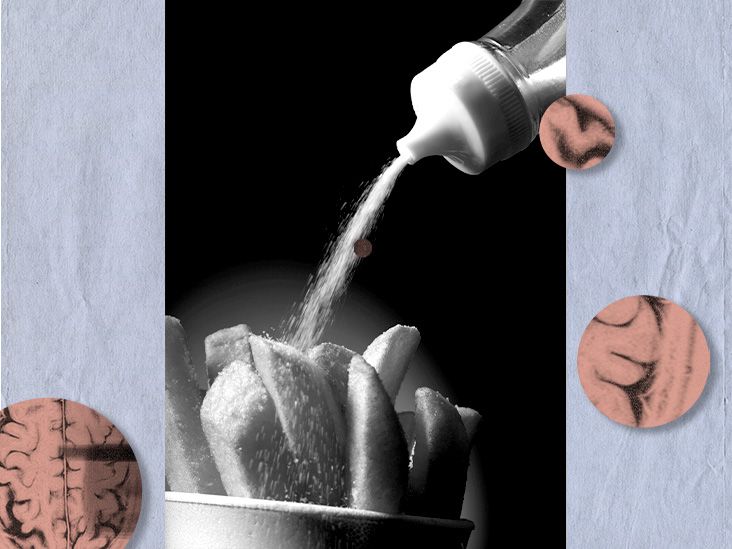The vagina may become sore during or after sex for several reasons. Causes may include friction, infections, allergies, and trauma. Treatment can depend on the cause.
Treatments vary depending on the cause. If the pain is due to psychological reasons, such as psychologically induced vaginal tightening, counseling may be a good option. However, if the pain is due to a latex allergy, a person may find that switching condoms helps reduce the pain.
This article discusses why a person’s vagina may feel sore after sex and what they can do to alleviate or prevent the pain.

The following sections will look at some potential causes of vaginal soreness after sex in more detail.
1. A lack of lubrication
A common cause of pain during or after sexual intercourse is a lack of lubrication. The vagina creates lubrication naturally, both to clean itself and when a person experiences arousal.
However, although vaginal dryness is common following menopause, low estrogen levels can cause it to occur at any age.
Using lubricated condoms and oil-free lubricants can help with reducing pain during and after sex.
Learn more about vaginal lubrication.
2. A general lack of arousal
In some cases, a person may not feel in the mood, or they may not be fully prepared to have sex with their partner.
According to the American College of Obstetricians and Gynecologists (ACOG), engaging in penetration when not aroused or ready can make sex uncomfortable or painful, both during and after intercourse.
3. Low estrogen levels
Estrogen levels fluctuate significantly over the course of a person’s life, such as during puberty, menopause, and pregnancy.
These fluctuations can result in low estrogen, which may cause symptoms such as pain during sex, hot flashes, fatigue, or mood shifts.
Treatment options vary but may include hormonal therapies.
Learn more about low estrogen levels.
4. Menopause
The North American Menopause Society (NAMS) says that menopause leads to vaginal dryness, a tighter vaginal opening, and the thinning of the vaginal walls. This lack of lubrication and flexibility can cause painful sexual encounters.
A person can talk with their doctor about potential treatment options and use lubricated condoms or a lubricant during sex.
Learn more about menopause.
5. Previous injury
Sustaining injuries to the vagina may cause sex to become painful or uncomfortable.
For example, giving birth to a large baby may tear the vagina and cause scar tissue to form, resulting in pain during intercourse. A person could talk with their doctor about possible treatments for scar tissue in the vagina.
Learn more about injuries to the vagina.
6. Latex allergies
A latex allergy can cause burning, itchiness, and pain if a partner uses a latex condom.
If a person has an allergy, they can try to use alternatives to latex condoms, such as polyisoprene condoms, internal condoms, or polyurethane condoms.
Learn more about latex condom allergies.
7. Skin conditions
According to the ACOG, certain skin conditions — such as contact dermatitis — may cause skin cracking or ulcers near the vulva.
This cracking could result in pain during or after sexual intercourse. A person must avoid certain irritants to prevent the skin from reacting.
This may include avoiding certain skin care products, clothing, and even some lubricants.
8. Vulvodynia
Vulvodynia is a condition that causes pain in the vulva. According to the ACOG, the pain is at the opening of the vagina.
Medications or surgery may be necessary to treat this condition.
Learn more about vulvodynia.
9. Ovarian cysts
Ovarian cysts are fluid-filled sacs that grow on the ovaries. They can cause several symptoms, including pelvic pain, pain during sex, and difficulty urinating.
The
In more severe cases, wherein the cyst is causing considerable pain and will not go away, surgery may be necessary.
Learn more about ovarian cysts.
10. Vaginismus
Vaginismus causes the muscle between the vaginal opening and the opening of the anus to spasm involuntarily.
The NAMS explains that vaginismus can make penetration difficult and cause pain during or after sex.
Some treatment options for this condition include:
- physical therapy
- biofeedback
- vaginal dilators
- psychotherapy, such as cognitive behavioral therapy (CBT)
- relaxation exercises
Learn more about vaginismus.
11. Vaginitis
Vaginitis is a bacterial or fungal infection that causes inflammation in the vagina. Symptoms can include odorous discharge, itchiness, and pain.
A doctor will likely prescribe antibiotics for a bacterial infection. For a fungal infection, they may prescribe antifungal medication.
Many people
Learn more about vaginitis.
12. Urinary tract infections
A urinary tract infection (UTI) occurs when bacteria from the anus or skin travel up the urethra and into the bladder or kidneys.
According to the Centers for Disease Control and Prevention (CDC), UTIs have similar symptoms to some sexually transmitted infections (STIs). A person could speak to their doctor if they think they have a UTI or have symptoms such as:
A doctor will treat a UTI with antibiotics after conducting a urine test and a physical exam.
Learn more about urinary tract infections (UTI).
13. Bladder inflammation
Bladder inflammation, or interstitial cystitis, is a chronic condition that causes an irritated or inflamed bladder wall.
Some common symptoms include a feeling of pressure or pain around the bladder or pelvis, a frequent need to urinate, and pain during sex.
Treatments do not cure the condition, but they can provide some relief. Some options include medication, bladder training, and surgery.
Learn more about cystitis.
14. Prolapsed bladder
The pelvic floor muscles and tissues provide support for the bladder. Over time or due to injury, this support can weaken, causing the bladder to push through into the vagina.
According to the Urology Care Foundation, some people may not experience symptoms. However, some common ones include pain in the vagina, frequent UTIs, and pain during sex.
Treatments may include surgery, pelvic floor strengthening therapies, and medication.
Learn more about bladder prolapse.
15. Chlamydia
Chlamydia is an STI that may go unnoticed by some people. However, the
Doctors typically treat chlamydia with antibiotics.
Learn more about chlamydia.
16. Herpes
Herpes is an STI that causes open sores to develop on the genitals.
According to the
Learn more about herpes.
17. Gonorrhea
Gonorrhea is also an STI. It does not always present with symptoms, but without treatment, it can cause serious complications, such as infertility.
According to the
- an increase in vaginal discharge
- burning or pain during urination
- bleeding between periods
- pain during sex
Doctors can treat gonorrhea with medication, but this cannot correct damage such as pelvic inflammatory disease (PID). PID can develop if a person does not seek treatment for gonorrhea.
Drug-resistant strains of gonorrhea are now more common, so it is getting more difficult to treat this infection. If the infection is not responding well to treatment or the person’s symptoms are not improving, it is important to contact a doctor.
Learn more about gonorrhea.
18. Lichen sclerosus
Lichen sclerosus is a rare chronic condition that causes inflammation of the skin around the external areas of the genitals. It typically occurs before puberty or after menopause.
According to the National Organization for Rare Disorders, lichen sclerosus can cause pain, burning, and itching. It often requires aggressive treatment using topical steroids to help minimize scarring.
There is currently no cure, so treatment will continue for the duration of a person’s life.
Learn more about lichen sclerosus.
19. Endometriosis
Endometriosis occurs when tissue similar to the inner lining of the uterus grows outside the uterus.
The
- pain during and after sexual intercourse
- infertility
- general pain in the pelvic area
- digestive issues
- bleeding or spotting
Treatment may consist of pain medication, hormone therapy, or surgery to remove the growths.
Learn more about endometriosis.
20. Previous sexual assault
People who experience sexual violence may associate sex with pain, which may cause vaginal tightening and tension during sexual intercourse.
If this is the case, a person may wish to speak with their doctor. They may refer them to a psychiatrist or pelvic floor physical therapist, who can help the person relieve any tension in their pelvic floor muscles.
A person could talk with their doctor if they experience painful sex or pain after sex that does not get better with lubricant use or another form of treatment.
They may also contact their doctor if they experience additional symptoms, such as itchiness, burning, or foul-smelling discharge.
Is it typical for a person to be sore after sex?
Sex may be sore straight after intercourse, but this usually subsides within a couple of hours. If soreness lasts more than a day, consult a doctor or gynecologist.
What helps a sore vagina after sex?
Cold therapy may ease pain and discomfort. For example, by placing an ice pack on the vagina while wearing underwear. Other remedies may include abstaining from sex until the pain subsides. If it does not, talk with a doctor or gynecologist.
Is it typical to be sore after losing your virginity?
Sex for the first time may be sore as the hymen stretches or breaks. However, the hymen may break before intercourse, during physical activity, or as it wears thin over time. Causes of soreness after losing virginity also include not enough arousal or lubrication.
There are many potential causes of vaginal soreness after sexual intercourse. The cause can determine how a person prevents future soreness and treats the problem.
A person could talk with their doctor about their options if they experience pain during or after sex, particularly if other symptoms accompany the pain.


